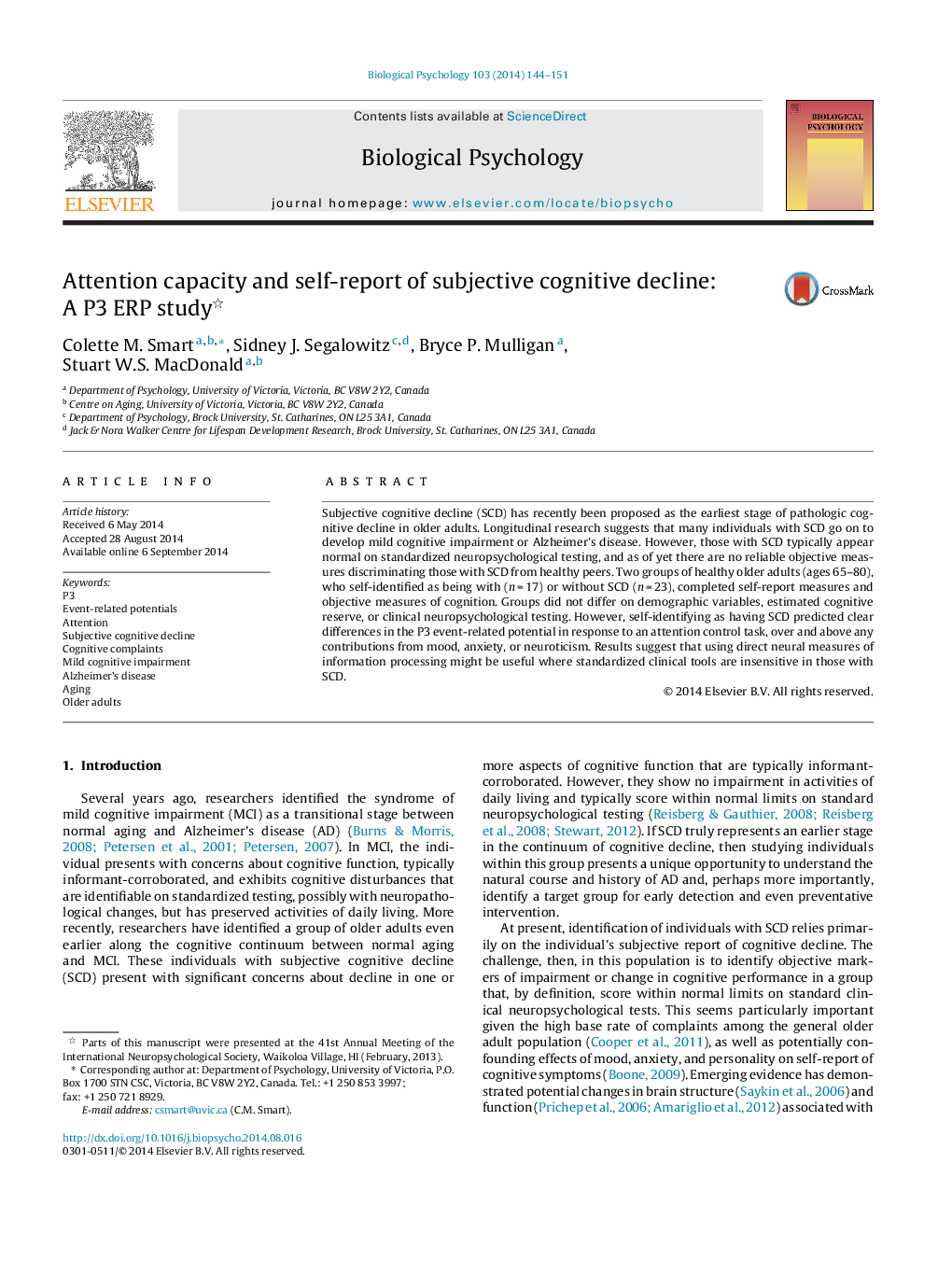| Article ID | Journal | Published Year | Pages | File Type |
|---|---|---|---|---|
| 7278732 | Biological Psychology | 2014 | 8 Pages |
Abstract
Subjective cognitive decline (SCD) has recently been proposed as the earliest stage of pathologic cognitive decline in older adults. Longitudinal research suggests that many individuals with SCD go on to develop mild cognitive impairment or Alzheimer's disease. However, those with SCD typically appear normal on standardized neuropsychological testing, and as of yet there are no reliable objective measures discriminating those with SCD from healthy peers. Two groups of healthy older adults (ages 65-80), who self-identified as being with (n = 17) or without SCD (n = 23), completed self-report measures and objective measures of cognition. Groups did not differ on demographic variables, estimated cognitive reserve, or clinical neuropsychological testing. However, self-identifying as having SCD predicted clear differences in the P3 event-related potential in response to an attention control task, over and above any contributions from mood, anxiety, or neuroticism. Results suggest that using direct neural measures of information processing might be useful where standardized clinical tools are insensitive in those with SCD.
Keywords
Related Topics
Life Sciences
Neuroscience
Behavioral Neuroscience
Authors
Colette M. Smart, Sidney J. Segalowitz, Bryce P. Mulligan, Stuart W.S. MacDonald,
